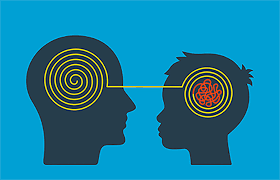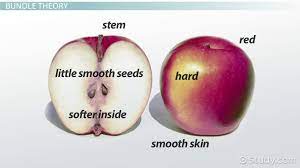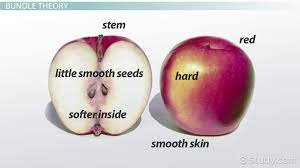Descartes Intuition and Deduction Thesis
1/16
Earn XP
Description and Tags
Name | Mastery | Learn | Test | Matching | Spaced | Call with Kai |
|---|
No study sessions yet.
17 Terms
Define intuition
ability to immediately grasp of a self evident truth , they are a priori , no need for experience to confirm it
e.g. Cogito argument
Define deduction
ability to logically demonstrate a truth without justification from experience , not immediate takes several steps , still a priori
e.g. Trademark + the reality of the external world arguments

What are the premises and conclusions for the cogito argument
P1. I am a thinking thing
P2. All thinking things exist
C . Therefore I exist
a priori intuition


Define Descartes notion of “ clear and distinct “ ideas
Clear ideas refer to what is bright , vivid and present
Distinct is when it is separated from other ideas
Example : Cogito argument and triangles have three sides


Is the cogito argument a priori/ posterior , and why ?
A priori
do not require sense experience to know or justify that we are a thinking thing as we can be conscious of that from birth that we think
something we are accustom to innately , experience does not give us the ability to think

What is a criticism of the cogito argument the copy principle from Hume ?
Founded on the copy principle to dispute the idea that we can know intuitively
Hume - cannot have a priori knowledge of self
all concepts, copies of sense impressions
cannot have the ‘self ‘ we end up observing heat , pleasure anger
no sense impression of self , only observe emotion and body temp
self is not clear and distinct concept - bundle of impressions

What would Descartes respond to Hume’s Bundle of impression criticism ?
Argument contradictory - refers to “I “ doing the perceiving
No particular experience associated with self
Hume talks about the I feel pleasure , pain cant talk about that unless something , the self is feeling the emotion , pain
What does Descartes aim to do in his intuition and deduction thesis
Respond to scepticism , defend rationalism
What argument does Descartes establish from the cogito argument
Trademark argument
What is the copy principle ?
principle of empiricism all ideas are copies of impressions
Outline the trademark argument
P1. The cause of anything must be at least perfect as its effect
P2. My ideas must be caused by something
P3. I am an imperfect being
P4. I have the idea of God , which is that of a perfect being
C1. I cannot be the cause of my idea of God
C2. Only a perfect being can be the cause of my idea of God
Criticism of trademark argument on the casual adaquacey
Criticism of trademark argument , hume’s fork
Criticism of trademark argument , no clear and distinct idea of God
God exists - how do we know ? - clear and distinct ideas - why trust these ?
Criticism of trademark argument , Locke universal ideas
Outline the argument from the external world
A priori deduction
P1. The physical objects I assume exist outside my mind like tables and chairs are taken in by my sense , not made up in my imagination as I cannot control how I perceive them
P2. Either these are made up ideas given to me by God or they are are really existing physical objects that exist independently of my mind
P3. I strongly believe that these sensations come from real physical objects and I have no way to tell they are not so if God directly causing these ideas in me then he would be a deceiver
P4. God is perfect and therefore would not deceive me about my reality
C . therefore my perception of physical objects is of a truly existing external world
What are the 3 arguments for the iintuiton deductio thesis ?
Cogito , Trademark , External world